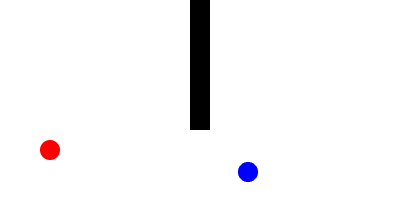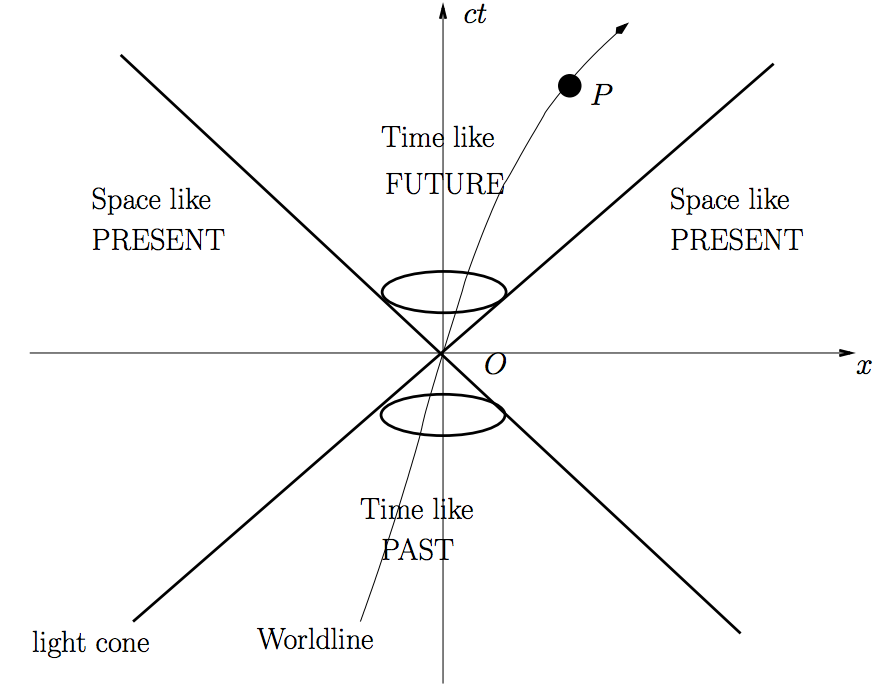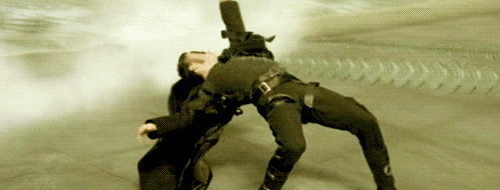Relativistic replication
University of Wisconsin-Madison
twitter @mikolalysenko | github @mikolalysenko | blog: 0fps.net
Realtime multiplayer games on the web
The technology is already here!
- WebSockets
- WebRTC
- WebGL
- WebAudio
- Game pad API
- node.js
But why is almost no one writing them?
Online multiplayer games are hard to implement
Graphics + Distributed Systems = Hard problems
Multiplayer games as distributed replicas
Multiple machines, one shared state

Issues in distributed systems
New problems:
- Byzantine failures
New resources:
- Bandwidth
- Latency (RTTs)
Byzantine failures (aka cheating)
Players are intelligent and malicious agents
Easy solution
Use client-server, one master replica
Cynical Bonus: Scarcity + Control = $$$
Better solution
Peer-to-peer RAFT/PAXOS (?)
Bandwidth
Simple estimate for games:
B = k n2
- B = consumed bandwidth
- k = input rate
- n = number of players
Easy solution:
Assume n small (don't make an MMO!)
Better solution
Region of interest management, throttling
Lag
Consequence of physics
Easy solution:
Don't make a realtime multiplayer game
Better solution:
Tradeoffs, subject of this talk!
Replication and consistency
Consistency models determine replication algorithms
Strong consistency:
- Easier to reason about, less non-determinism
- Requires more coordination, latency
Weak consistency
- Harder to reason about, bugs
- Less coordination, lower latency
Lock-step synchronization
Enforce strict linearizability

All players barrier synchronize each tick
Lock-step synchronization
Pros:
- Strongest possible model of consistency
- All players see same sequence of events
Cons:
- Input lag >= slowest RTT in network
- Not robust to failures (eg desync bugs, players drop)
Dead reckoning
Eventual consistency
Apply inputs immediately
Predict remote events
Correct errors
Lag-free/Lock-step

Dead-reckoning with no correction

Dead-reckoning with corrections

Dead-reckoning with severe lag

Dead reckoning
Pros:
- No network lag on local input
Cons:
- Prediction doesn't always work
- Correction expensive
- Visual glitches
Local perception filters
Causal consistency
Process input in causal order
Local player = sooner
Remote player = earlier
P. Sharkey, M. Ryan, D. Roberts. (1998) "A local perception filter for virtual environments" VR Symp.
Commutative (good)


Non-commutative (bad)


Non-commutative (ugly)


Causality in space-time
Physically inspired model of causality
- No object travels faster than c
- All objects are points
- Interactions occur instantly at discrete points
- Space is flat

Causal order

Cauchy surfaces
A "snapshot" of the world
Spatial analog of vector clocks
Hypersurface in space-time
Unique intersection property
Lock-step

Dead reckoning

Adaptive

Time dilation


Implementing local perception filters
Persistence
Determinism
Decoupled rendering
Local perception filters
Pros:
Responsive local inputs
Correct ordering of events
Cons:
Can't remove all lag
Game must obey relativity
Cheating the system
Players can defer actions by artificial lag
Gives advantage by increasing reaction time
But other players will still see consistent view of events...
What does this look like?
Bullet time

J. Smed, H. Niinisalo, H. Hakonen. (2004) "Realizing bullet time effects in multiplayer games with local perception filters"
Demo
Thanks for listening!
Blog posts:
No-interaction theorem
Multibody physics doesn't really work with special relativity
Lorentz invariance or Newton's 3rd law: Pick 1
System is either acausal or unstable